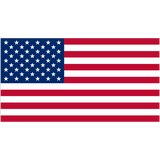
U.S. Women's hockey remains optimistic despite dismal response to boycott
Wednesday espnW broke the story that the U.S. women's national ice hockey team players would boycott the upcoming 2017 IIHF Women's World Championships unless contract talks with USA Hockey were able to progress. Chief among player complaints were paltry pay, unequal support of the men's and women's developmental programs (citing $3.5 million dedicated annually to the boys' development while no complementary girls' development program existed) and lack of games and marketing events to further grow the fan base.
USA Hockey's reaction was to indicate that it would not cave to player demands, but instead would look to ice a team of replacement players from within the women's development pipeline –– scabs, as some might refer to them.
Although the U.S. national team players were not surprised by USA Hockey's reply, it was still disappointing. It seemed to only further unite the players, though, including those further down in the system, whom team captain and forward Meghan Duggan reached out to by telephone.
The back-and-forth began, with players going on the offense talking to media from various outlets, going on television and radio, with USA Hockey publishing a number of press releases refuting player claims, citing years of support and including US Olympic Committee financial support with their own.

The players, however, did not blink. As of Saturday morning USA Hockey has reached out to players' legal team, comprised of John B. Langel and Dee Spagnuolo, who represent the U.S. women's soccer team in its equal-pay battle against USA Soccer, to continue in-person talks and perhaps find some common ground.
Instead of being frustrated with player demands, however, Duggan argued, USA Hockey should celebrate its players' strength and unity.
"If I were USA [Hockey]," Duggan said, "I would be proud of us, I really would. I know that they're on the other side of this but as a group, seeing how strong we are, how passionate we are about this cause.
"Obviously there are a lot of things they don't agree with us on but this is a really powerful group of women that USA Hockey has, for lack of a better term, bred. We put our lives into this. We do everything we can, every single day for this program. I certainly would be proud of us and hope to work together with us to make some significant progress."

"I'm unbelievably proud of this program and all the girls in it, everyone involved," added Duggan. "All the players and everyone that's leant support. It's so much bigger than our team. It's so much bigger than hockey. I think everyone in our program recognizes that and has stayed united because of that."
The past few years have seen a lot of upheaval in women's hockey, protests, work-stoppages and demands that have ultimately turned out in favor of the women's national team players. They instigated a work stoppage in the fall of 2014 when the CWHL required players to sign contracts the players deemed unfavorable, an action that resulted in a shorter length of term. They demanded a shorter season from the NWHL in order to focus on Olympic preparations; the NWHL complied. While not every battle fought has been public or successful, enough have.
"Certainly as female athletes we've had a lot of different situations that arose over our careers, really, where I think it's important that we stand up for our careers, for what we believe in, for what's fair and right. And it's not always easy to do," Duggan added.
"[We're] a pretty strong group of women. We put our minds and heads into this and other things and I think standing united in it, communicating throughout the entire process are big components of us being able to make a stand like this and to start a movement."

Although it's been shown that more women at the top of the business pyramid leads to expanded opportunities for women within an organization, the women of the USWNT aren't necessarily looking for a change in leadership, they said. Just improved support.
"I feel that no matter what gender you all, if you can do your job to the best of your ability, 100 percent, then it doesn't matter," fellow Olympic team defender Kacey Bellamy said.
"Obviously we're women and we're all about empowering women. I would like to see, whether it's a male or a female in a certain position, that they respect and equitably support all of their employees and people that work within their organization, whether they're male or female," Duggan agreed.
As for Monday's talks, players are unsure what they'll encounter from their organization, but they are optimistic.
"I think it's a good step, the communication piece and willingness to meet with us," said Duggan. "I guess we'll chat with them, with the lawyers and we'll go from there."





